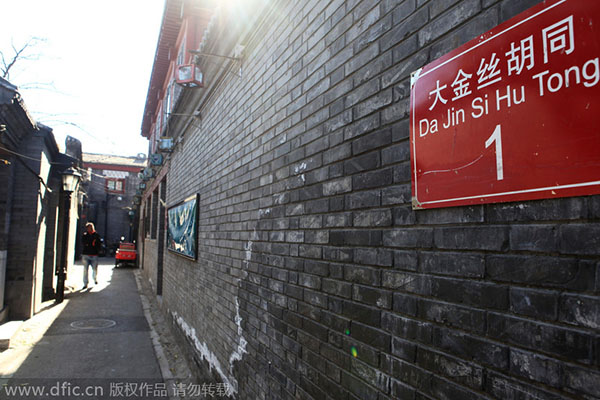 |
|
Da Jin Si Hu Tong, an alley in downtown Beijing is seen in this Nov 6, 2014 file photo. [Photo/IC] |
A set of new rules for the naming of Beijing's places bans the use of leaders' name and requires "hutong", small lanes in North China, to be retained in the names of time-honored streets, reported Legal Daily on Tuesday.
The draft, which was made public to solicit opinions on Tuesday, pointed out that to "respect history, and keep the names easy to remember", original names for old streets or places, including those with "hutong",?in their names, should be retained after reconstruction.
The rules also ban the use of names of modern people and leaders as well as foreigners and foreign places in the names of Beijing's places.
Unlike cities such as Leningrad in Soviet Union, Washington D.C. in the US, or Ho Chi Ming City of Vietnam, there are few places in China named after great leaders. That is probably due to a long-standing taboo in China's history which involves the names of emperors.
The taboo forbids the mentioning of an emperor's name in words and requires the use of a similar word to replace it. It also bans the use of an emperor's name in place names.
For example, after Yang Guang, the second emperor of Sui Dynasty (581-618), was selected as the prince, dozens of places across the country with the character guang in the names were forced to change their names.
The tradition continued when the People's Republic of China (PRC) was founded in 1949, as the founding fathers of the country set the rule that no names of leaders should be used in streets names to prevent worship of leaders.
